December 24, 2019
Fasting is an ancient, tried and true practice that can be a revolutionary means for taking your brain health, physical health, and spiritual health to the next level. Historical examples of the use of fasting for health and spirituality abound. Hippocrates, a proponent of fasting, believed it was the key to the body being able to heal itself and once said, “…to eat when you are sick, is to feed your sickness.” Native American tribes used fasting in conjunction with vision quests to amplify their ability to be able to reach states of higher dimension. Today, many Christians practice some form of fasting for 40 days during Lent to imitate Jesus' fasting in the wilderness before beginning his ministry.
Yet, despite being prevalent all over the globe in various cultures for thousands of years, there are still plenty of misconceptions out there regarding fasting; the most prevalent being that fasting is dangerous or that it's some kind of eating disorder.
I'm not going to say fasting can't be harmful if done improperly or for the wrong reasons.
Depriving oneself of food is no picnic (literally, and figuratively), so I certainly wouldn't incorporate something like fasting into my daily routine if I had the slightest inclination that it would be detrimental to my health or cause me to whither away to a scrawny malnourished semblance of who I am today. After all, I've worked tremendously hard to put on the muscle I have now, and I consume upwards of 3,000 calories a day to maintain it (though fasting can be a potent growth hormone and testosterone boosting strategy to assist with muscle gain, if done properly).
So in today's article, you'll learn more about the powerful health benefits of fasting. You'll also discover the answers to the top five questions I'm often asked about fasting. Finally, I'll show you how to get Kion's comprehensive fasting guide, Fasting Decoded (which will teach you everything you need to know about fasting), for free.
The Powerful Health Benefits Of Fasting
Every single day, 365 days a year, I intermittent fast for 12 to 16 hours (pretty simple, considering I am sleeping during much of this time – for most women, especially lean and active women, I recommend stopping at 12 hours and for men, pushing closer to 16 hours). Then one to two times a month, I try to fast for about 24 hours (typically, this looks something like eating Saturday dinner, then abstaining from food until Sunday dinner.) Finally, once per quarter, I do what's basically a version of a fasting-mimicking diet, which means that for five days I eat about 40% of the number of calories that I would normally consume.
So I guess you could technically say that I'm constantly incorporating some form of fasting. Why, you ask?
Basically, when done the right way, fasting is an incredibly effective therapeutic approach that produces amazing therapeutic, weight management, anti-aging and even spiritual results for most people. And about the notion that fasting is merely a re-brand of disordered eating you may have seen popping up in news articles lately? Well, as a topic I've covered in the numerous articles and podcasts listed below, there's no shortage of science out there proving that fasting can be an invaluable addition to your health and fitness routine, and when done properly, is absolutely nothing like a true disordered eating state such as anorexia or bulimia. This science is highlighted in my content including:
- The Complete Guide to Fasting: How To Heal Your Body Through Intermittent, Alternate-Day, and Extended Fasting.
- The Ultimate Guide To Combining Fasting and Exercise: Everything You Need To Know.
- The Official Fasting Q&A With Ben Greenfield: Does Coffee Break Your Fast, Poor Sleep During Fasting, Amino Acids During Fasting & Much More!
- The Benefits Of Fasted Exercise, Busting the Myth of the Pre and Post Workout Meal, Who Shouldn’t Fast & Much More!
- The Secrets Of Hugh Jackman’s Wolverine Diet, Does A Morning Cup Of Coffee “Break Your Fast”, The Circadian Clock & Much More!
Also, depending on why you choose to fast (autophagy, improved body composition, gut health, etc.) you can experience similar benefits (in some cases, even more pronounced) to benefits that come with extreme calorie restriction, without actually having to excessively deprive yourself.
Some of the proven benefits of fasting include…
- Improved Body Composition: Fasting for periods of 12 hours or more has been shown to improve fat oxidation and fat-burning. Fasting has also been shown to increase the body’s secretion of human growth hormone, which aids in preserving muscle and burning body fat.
- More Energy: It’s been observed that all mammals tend to be active when hungry and sedentary when fed. As counter-intuitive as it might sound, energy levels tend to increase during extended fasts, due to a rise in the hormone adrenaline. Humans have likely evolved this mechanism as a way to give the body a boost to go hunt down some grub when food is scarce.
- Appetite Regulation: Ghrelin, known as the “hunger hormone,” is responsible for making us want to destroy that bag of greasy potato chips. Leptin, on the other hand, is the hormone responsible for telling us that we’re satiated. Balancing these hormones is one of the driving factors behind appetite regulation. Fasting has been shown to regulate ghrelin, which allows leptin to normalize and appetite to balance out. (Note: Females may not experience this benefit of fasting as much as males do. More on this later.)
- Gut Health: Fasting can protect the gut against the negative impacts of stress and can lead to increased microbial diversity and elevated rates of fermentation, making your gut and immune system stronger.
- Immune System Health: Mouse models have shown promising results for autoimmune conditions, specifically Multiple Sclerosis and Type 1 Diabetes. It’s hypothesized that fasting prompts the body to remove and replace damaged cells, as well as stimulate regeneration of damaged tissue.
- Brain Health: Periods of fasting can induce autophagy in your neurons, thus protecting nerve cells from degeneration. Fasting also increases the secretion of the brain hormone BDNF which aids the growth of new nerve cells and the formation of new neural pathways that can improve brain function as a whole, specifically memory and learning.
- Heart Health: Fasting has been shown to improve a number of blood lipid markers indicative of heart health including blood pressure, cholesterol, blood sugar, insulin sensitivity and triglycerides.
- Longevity and Disease Prevention: Autophagy is a repair process in which cells cleanse and repair themselves by removing old and damaged proteins and replacing them with new ones. This process has been associated with anti-aging, longevity, and improved metabolic health, and becomes accelerated during periods of fasting. Autophagy has major implications for longevity and anti-aging because it keeps cells young, healthy, and functioning optimally.
- Improved Self-Control and Willpower: Fasting by nature is an extreme exercise in willpower. You are consciously choosing not to give in to a deep, physical desire (to eat). Frequently practicing this kind of self-control through fasting can translate into other areas of life, improving self-discipline and the ability to withstand temptations and distractions that derail us from focusing on what matters in our lives.
As you can see, the benefits of fasting are varied, numerous, and scientifically proven. The key is going about it the right way—which involves pre-fast preparation, adequate hydration during fasting windows, properly breaking your fast, and more (Kion's Fasting Decoded guide I mentioned earlier walks you through all of this step-by-step).
Top 5 Burning Questions About Fasting
Whenever I mention “fasting,” I'm inevitably hit with a barrage of questions… “Is fasting actually good for you?” “Does [insert just about anything from coffee and tea to supplements and beyond here] break my fast?” “Can I still exercise while fasting?”
So without further ado, here are the 5 questions I'm most frequently asked about fasting. If you're still left confused with questions of your own that weren't answered here, don't fret, I'll tell you at the end of this article exactly how to get your burning fasting questions answered.
1. Does coffee break a fast?
Black coffee provides a myriad of health benefits, from enhancing fatty acid mobilization from adipose tissue and enhancing cognitive alertness to enhancing metabolism. If you're using a French press, and not a paper filter, a lot of the cholesterols in the coffee can get transported into the blood-brain barrier more easily. And so, coffee—without butter, MCT oil, coconut oil, or any superfood creamers— will actually assist a fast, not harm it.
There are some researchers like Dr. Satchin Panda who hypothesize that the taste of anything, including coffee, can cause this release of incretin hormones or other digestive hormones from the digestive tract that may either make you hungry or may disrupt some of the circadian rhythm benefits of fasting, or may decrease even potentially some of the autophagy benefits of fasting, but I've never seen research that shows that to be the case. And I think that in most cases, coffee, tea, sparkling water, or even non-calorie sources of sweeteners like stevia, for example, in water or in your beverages, is just fine and does not hurt or harm your fast.
Long story short: if it has calories in it, it breaks your fast, and if not, it doesn't. That simple.
2. How can I get better sleep while fasting?
It's an all too familiar feeling. It's the first night of your fast and there you are, lying awake, chewing on the inside your cheeks thinking about food. Sometimes it's because you're carbohydrate deprived, your serotonin and melatonin are low, your nervous system is stuck in fight-or-flight mode, and sometimes it's because you're just plain hungry. But more often than not it's simply because your body can get by on less sleep while fasting.
But ultimately, I'm always a fan of getting a good night's sleep. So for shutting down the sympathetic nervous system, one of my go-to supplements would be CBD. Most research on CBD shows that you need pretty hefty amounts to be able to enhance sleep—somewhere in the realm of 100 to 300 mg. Considering the average bottle contains about 300 mg of CBD, this particular could get rather spendy. If you want to try supplementing with CBD for sleep, I recommend Element Health Full Spectrum CBD Oil, which is a very powerful high-dose CBD oil you can buy in 4,800 mg bottles. Sleep Remedy, by Dr. Kirk Parsley, is another potent sleep supplement that I really like. It contains GABA, which is an inhibitory neurotransmitter. Another good one is Lipocalm by Quicksilver Scientific. Both of these are particularly effective if you wake up at night and need help getting back to sleep.
A few other things that are used traditionally to shut down the nervous system, or calm the nervous system during sleep, and that I've found to be helpful in a fasted state, would be valerian root and passionflower. Both of these can increase GABA production. There is also a compound called Kava Kava, which can also be helpful for many people, as well as Chinese skullcap.
If you're doing daily 12 to 16-hour intermittent fasts and not a longer five-day fast, just make sure you're getting enough clean carbs when you do have your evening meal—such as yams, sweet potatoes, dark chocolate, red wine, millet, berries, raw honey, etc. These will greatly help with sleep by increasing serotonin levels. And finally, don't underestimate the importance of breathwork and meditation. A little breathwork or meditation prior to sleep—just sitting, breathing, being mindful is super helpful.
A quick, calming breathing exercise you can do anywhere is 4-7-8 breathing. Begin by placing the tip of your tongue against the ridge of tissue behind the upper front teeth. With a quiet inhale through the nose, inhale for a count of four, hold your breath for a count of 7, then exhale audibly through your mouth, making a ‘whooshing' sound for a count of 8. Repeat this cycle at least three more times.
Here are a few helpful podcasts and articles of mine that'll teach you more about breathwork and meditation for sleep:
- A New Style Of Meditation That Helps You To Stress Less & Accomplish More – The Emily Fletcher Podcast.
- The Ultimate Breathwork Ninja Guide: How To Banish Stress & Kiss High Cortisol Goodbye.
- Why You Can’t Afford Not To Meditate (& One Simple Mindfulness Exercise You Can Do Today).
- The Renegade Pharmacist: How To Increase The Effects Of Psilocybin, The Secrets Of Colostrum, Fixing Constipation With Breathwork & More.
- Meditation For Mind-Blowing Sex, Meditation For Insomnia, Meditation For Energy & Much More.
- 30 Ways To Breathe Better.
- The World’s Best Phone Apps For Sleep, Meditation and Relaxation.
Finally, fasting can increase cortisol, which is a counter-regulatory hormone that's meant to increase glucose in the blood while you're fasting. If your cortisol levels are elevated, there's some evidence that about 500/600 milligrams of a supplement called phosphatidylserine may be beneficial (although, interestingly, breathwork and meditation can be just as potent).
I've found that people generally need to experiment with what works well for them. For me, it's mainly CBD and Sleep Remedy, or CBD and Lipocalm, and when I'm traveling, Lipocalm by Quicksilver Scientific. If you struggle with sleep generally, or just want to learn more tips for getting a solid night of sleep, read my article, “The Last Resource On Sleep You’ll Ever Need: Ben Greenfield’s Ultimate Guide To Napping, Jet Lag, Sleep Cycles, Insomnia, Sleep Food, Sleep Supplements, Exercise Before Bed & Much, Much More!”
3. Can I still train while fasting?
Anything that rapidly depletes glycogen levels and carbohydrate levels, or increases your reliance upon carbohydrates during exercise, is something that's going to be pretty dang uncomfortable in a fasted state.
What exactly do I mean by all that?
Basically, any relatively intense exercise such as high rep, low weight weightlifting, or intervals that are anaerobic, intense, and two to five minutes in length like Tabata sets or high-intensity interval training. When you're doing any of the aforementioned “met-con” style workouts, you're rapidly burning through carbohydrates versus if you were weightlifting with high weight and low rep (like a 5×5 deadlift, squat, chest press, shoulder press, pull routine) or something like a super slow training protocol.
Bodybuilding and met-con workouts are designed to drain glycogen levels, whereas lifting heavy weights for brief spurts is fine. Short, 10-30 second bursts on a bicycle are also a good option because you have creatine to rely upon, and you're not dipping significantly into glycogen.
Additionally, any aerobic exercise you can perform at a conversational pace like walking, swimming, cycling, yoga, or even just passive exercise in a sauna, also works very well in a fasted state.
Remember, humans had to venture out for food in a fasted state for thousands and thousands of years and did just fine, and often even had to engage in brief bursts of intense exercise to finish off a hunt, also while in a fasted state. There's no rule that fasting means you have to lie on the couch watching Netflix, as the oft-overused analogy goes.
Long story short: quick and hard bursts or long and slow aerobics are generally fine while fasting, but mid-distance work or met cons (esp. hard efforts of 30+ seconds in duration) are likely impacted deleteriously while fasting.
4. Are there any ways to enhance the benefits of a fast?
If your goal is cellular autophagy, then there are a whole host of options that have been proven to increase autophagy. I'm a huge fan of berberine or a combination of bitter melon, Panax notoginseng, and Astragalus membranaceus, which can be found in Kion Lean. Keep in mind, Kion Lean also manages blood sugar so it could result in hypoglycemia if you combine it with a lot of exercise. So just of be wary of that and, as I just mentioned, stick to largely aerobic exercise (yoga, sauna, swimming, etc.) if you're going to take Lean or any of the ingredients I just listed.
Other ways to increase autophagy are sauna sessions and cold thermogenesis. A fun exercise that I have a lot of my clients do is a “three by three.” First, do three minutes of a cold soak, as in literally filling up your bathtub with ice-cold water and soaking for a full three minutes. Next, do three minutes of a Wim Hof style breathing or box breathing or some type of breathwork to consciously control your response to cold. Next – you guessed it – go back into the cold for three minutes, back to breathing for three, back to cold for three, and finally finish with three minutes of breathing.
If you are wanting to enhance the gut cleansing benefits of a fast, I would recommend doing a coffee enema to increase the bile released by the gallbladder, get a little bit of an upregulation in the phase 2 detoxification of the liver (listen to my liver cleanse podcast for more on that), and generally clean things out via enhanced peristalsis. Plus, you can drink your coffee through both ends during your fast because we've already established the fact that coffee does not break a fast.
On my own long fasting days, I do a coffee enema, a 30 minute sauna, 5 minute cold plunge and a long walk.
5. Do Amino Acids Break A Fast?
It's no secret that I am a huge fan of amino acids. I use them regularly in my training, but especially during fasted workouts to stay in an anabolic state and maintain high blood levels of amino acids. These things are like rocket fuel, and it's safe to say they're probably the supplement I use most. It's important to note though that I am not referring to branched-chain amino acids (BCAAs), which can deleteriously impact insulin and glucose levels, but rather essential amino acids (EAAs), which are far more complete and balanced.
So, naturally, I often hear, “But ‘so and so' says that amino acids break a fast!”
The answer…is complicated, and dependent upon what your reason is for fasting. EAAs do contain a mild amount of calories (just 1 calorie per gram, but they're not “calorie-free” per se). However, they're non-insulinogenic, meaning they're not going to spike blood sugar. They're also not going to reduce the glycemic impact of fasting. When paired with the fact that they can really help maintain muscle in a fasted state, I'm convinced the pros of an active fasting person using EAAs far outweigh the cons—especially if the goal is simultaneous fat loss and muscle gain.
So if your fasting goal is gut health, circadian rhythm realignment, glucose stabilization or fat loss—and you still are wanting to work out and exercise in a fasted state—EAAs are only going to help you. I strongly believe that any active person who fasts should include them in his or her arsenal.
With that being said, there's one caveat: If your reason for fasting is purely cellular autophagy, then I would steer clear of all calories, including those from EAAs.
The trick is to preferably time your EAAs around the time you're going to be exercising so they are used anabolically (e.g. 5-20g pre or post-workout). I didn't mention this in my reply to the sleep question because I wanted you to be sure they made sense for you and your fasting goals, but you can also pop 5 Kion Aminos tablets prior to bed to stabilize sleep and to give yourself a slow bleed of anabolic muscle repairing or muscle-building energy throughout the night.
Summary
So that's it. I hope I've answered some of the questions you may have had about fasting.
If you're ready to experience firsthand how fasting can boost your health and fitness goals (makes a great New Year's resolution), then definitely sign up for Kion's Fasting Challenge. You can do so by clicking here. When you sign up, you'll receive Kion's comprehensive fasting guide, Fasting Decoded, for free.
You'll also unlock access to all of the goodies like daily digests to help motivate, educate, and troubleshoot common fasting problems; the support of an engaged community of over 12,000 other people who are doing it too; and exclusive access to a Q&A by yours truly where I’ll personally answer all your burning questions about fasting.
The challenge starts on January 6th, but I highly recommend you sign up today because you’ll need to prepare yourself beforehand. (Fasting Decoded has an entire section on how to prepare for a fast.)
If you're left still scratching your head, just leave your questions in the comments section below, and be sure to click here to sign up for the Kion Fasting Challenge to unlock access to the Q&A where I'll be answering them.


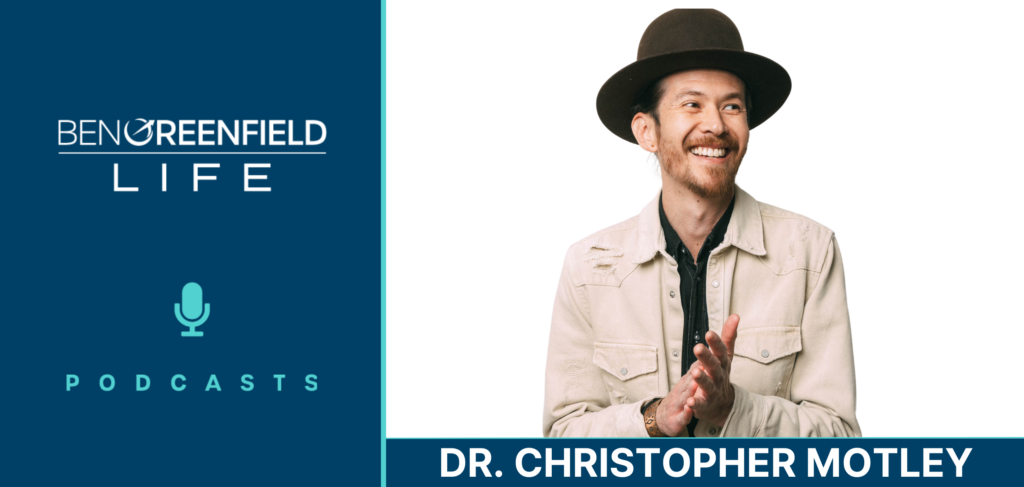

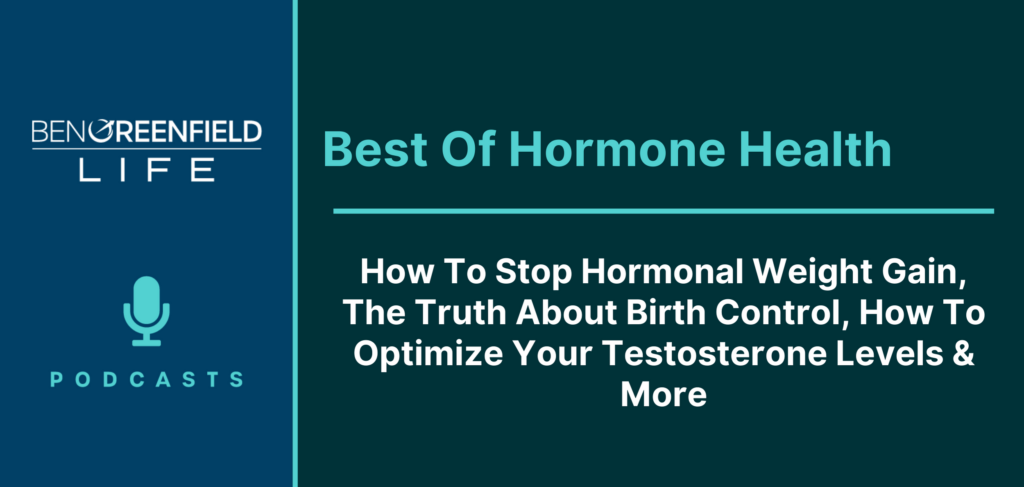
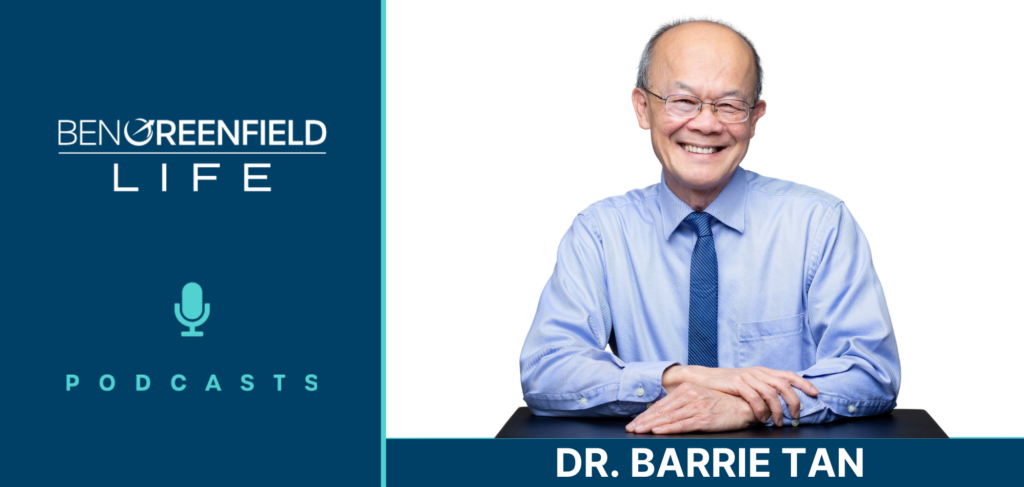
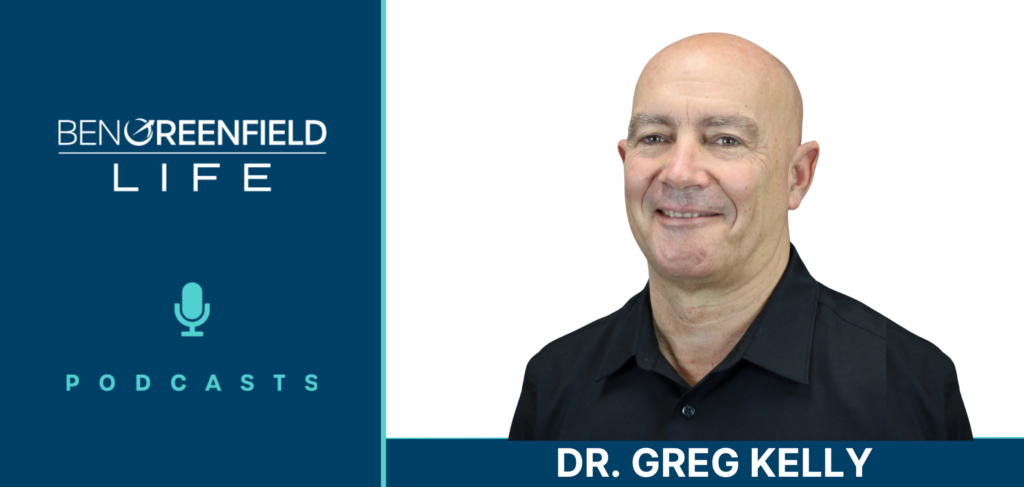





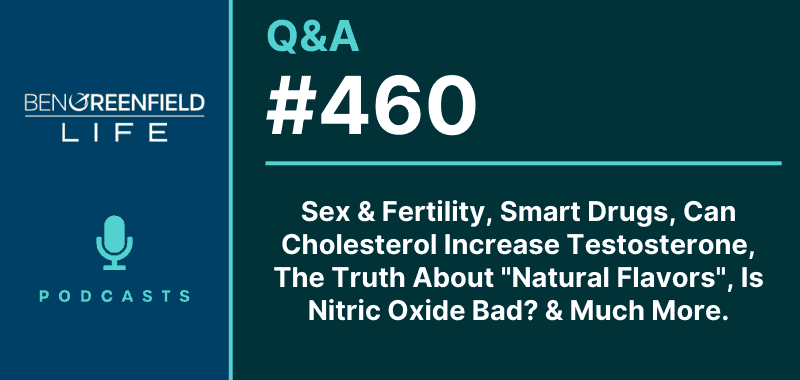

I didn’t have any expectations concerning that title, but the more I was astonished. The author did a great job. I spent a few minutes reading and checking the facts. Everything is very clear and understandable. I like posts that fill in your knowledge gaps. This one is of the sort.
Thank you so much for the article. Some of the answers to the questions are very detailed. I would be happy to provide this information on my site with the link to your website. Thank you. I’ll keep a lookout for the following pieces in this series.
Wonderful article!
Thanks a lot for the insightful tips.
I typically take a probiotic every morning when I take my daily glass of water with a pinch of Himalayan salt as I wake up but I’m now worried that it might be breaking my fast… Essentially what I’m asking is are probiotics ok to take during a fasted state? Also thank you for all your wonderful knowledge that you share with the world:) highly appreciated!
Depends on your reason for fasting. Check out the "Will Supplements Break My Fast?" section of this guide: https://fastingdecoded.org/
Hi Ben,
What about other supplements while fasting? Do you still take creatine, spirulina, a.m/p.m. vitamins, fish oil, magnesium, and glycine? Thank you.
Hi Ben
I usually do one long fast monthly (36 hours+), increasing time and aiming to reach 72 hours (currently at 43 hours). Last time I did the long fast my blood sugar level hit 2.8 mmol and I felt a little bit dizzy. Is there a way to avoid this? Cheers
Ben, I workout usually at 0530 and eat at 0800 breaking a 14 hour fast. My workouts aren’t the best and I’m hungry as a bear when I finally break my fast. If I’m lifting weight every morning in 8-15 rep range for 45 min keeping my heart rate around 125 average, should I change my fast, change my workout time, take something before to help my workout?
Jake, you could really benefit from some EAAs pre-work out. After workout too, if you find you’re still hungry and want to prolong your fast.
The do an incredible job providing energy and reducing hunger levels.
The email and article mentions how “fasting can be a potent growth hormone and testosterone boosting strategy” yet I don’t believe the topic was addresses. Is it as simple as saying if you do IF these things are a byproduct or are there specific strategies/fasts to maximize this?
What if I’m already lean and have good muscle mass? I’m really healthy, but I see so much people talking about fasting that it’s making me consider it but I don’t really see a reason for me to do it.
Hey Ben the link to phosphatidylserine is actually linking to a supplement called Memoractiv by thorne, which contains caffeine. Wouldn’t want anyone to accidentally take this at night thinking it’s going to help them sleep and lower cortisol.
Thanks and Merry Christmas!
Thanks for your article. I’m a thin woman and do mild exercise. I’ve been doing 16+ hours for fasting most days for a couple years. I am doing it primarily for health. It seems to make me lose weight very easily unless I eat a lot of carbs which doesn’t feel particularly healthy to do. If I only do 12 hour fast how would I get the benefits of autophagy? Thanks 😊
I would be very interested in hearing more about women & fasting from Ben…. Please!
How would Creatine effect the fast? Let’s say someone were to take 2.5 grams of Creatine with the EAA’s pre-work, would that be a good strategy for maximizing anabolism without having impacting blood sugar and insulin?
Thanks for all the help you provide Ben. Hope you, your wife and two boys have a great Christmas and new year!
Sorry, meant to wish you, your wife and boys a Happy Christmas!
Nice simple guide, thanks Ben! If anabolism is a primary goal then would it be prudent to titrate in 1 or more servings of Kion Aminos during the morning to shut down any catabolic response to fasting? Then train later on in the afternoon in a fed state.
Ie. Black coffee first thing in the morning with 5 grams of aminos, a 2nd cup with a second 5 grams at around 11 am. Breakfast at 1 pm (breaks 16 hour fast) then a further 5 to 10 grams prior to exericse (in the later afternoon when anabolic hormone production peaks). I do wear a Dexcom so figure I can record my own response to the protocol and adjust if needs be. Just be keen to hear your thoughts.
Many thanks
http://essaypapers.reviews/